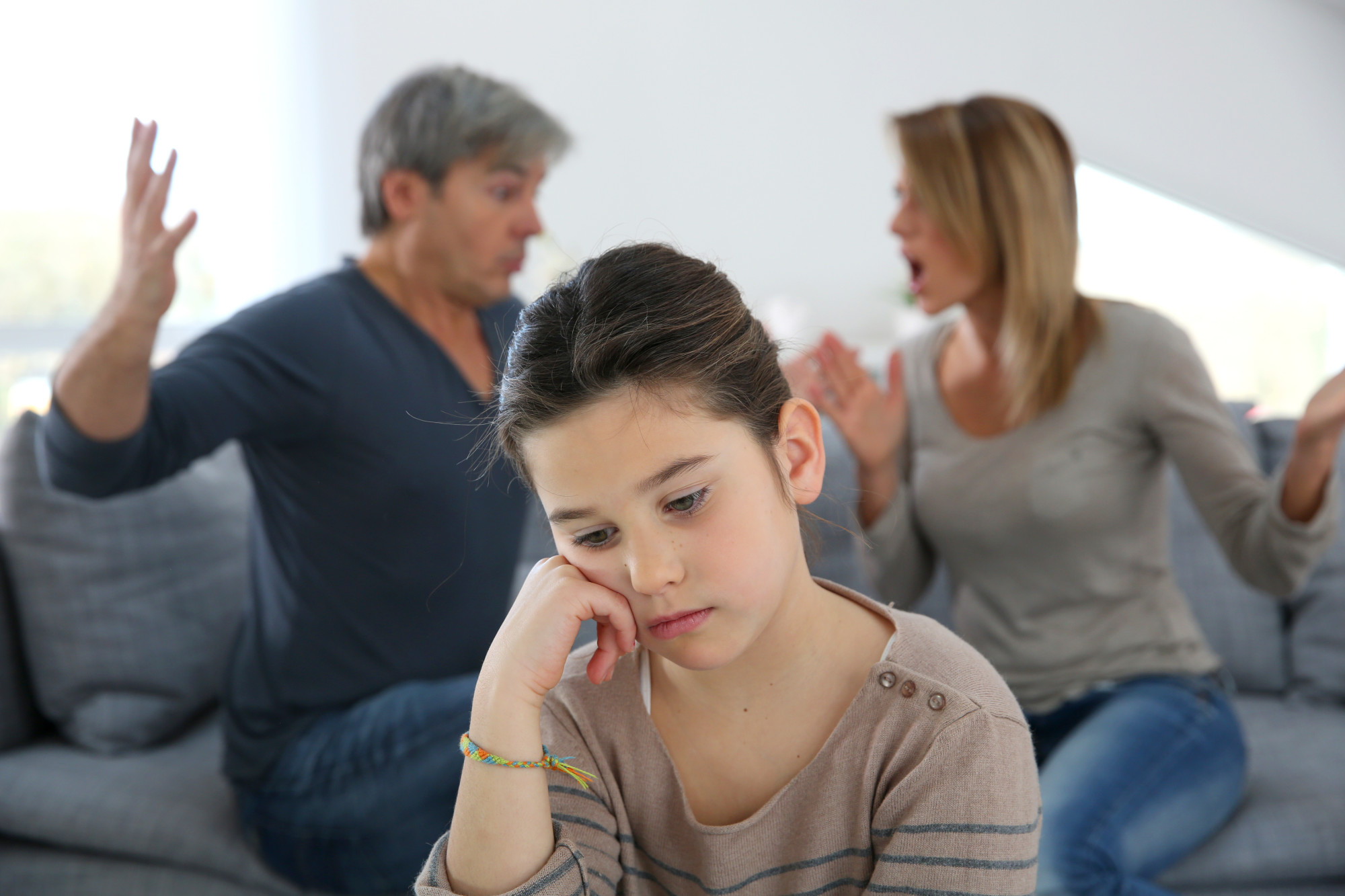
Parents fighting and daughter being upset
No one goes into a marriage thinking that it will end in divorce. Unfortunately, about 50% of marriages in the United States end in divorce.
Whether it’s due to irreconcilable differences or infidelity, the effects of divorce can be detrimental, especially to children. It’s impossible to predict how your children will react to your divorce. However, some general effects are common among children of divorced parents.
Keep reading to learn more about how your divorce might affect your children’s behavior and psychological well-being.
The Psychological Effects of Divorce on Children
The psychological effects of divorce can be both short-term and long-term. Your kids may feel angry because a divorce will make it look like their whole world is falling apart, and they can’t do anything about it.
Your younger ones might experience separation anxiety. They might think that if their parents can leave each other, they can also leave them. Anxiety may lead to regression in behaviors.
Your kids might go into depression because of worry that their family will never be the same. They might also be worried that they will never see one of their parents again.
The Effects of Divorce on Children’s Behavior
Divorce can also lead to some changes in your children’s behavior. Some kids might become withdrawn and stop participating in activities they used to enjoy.
Some of the behavioral effects of divorce result from its psychological effects. For example, a child feeling anxious might start withdrawing from activities.
Other behavioral effects are due to the changes in family dynamics. When parents get divorced, kids often have to deal with living in two different houses with different rules. This can be a lot to deal with, and it’s not surprising that some kids might act out.
Loss of Faith in Family Units and Relationships
The effects of separation on a family may extend to future generations. Kids who grow up in homes where their parents have divorced are more likely to get divorced.
It’s not clear why this is the case, but it could be because they’ve seen firsthand how much pain a divorce can cause. Kids might also have a hard time trusting people and maintaining relationships.
This isn’t always the case. Even if you get divorced, it doesn’t mean that your children will follow in your footsteps.
How to Help Your Children Through Your Divorce
If you’re getting a divorce, there are some things you can do to help your children through the process. First, try to keep things as stable as possible. Maintain the same routines and living arrangements for your kids.
Try to put your children’s needs first. If there are visitation and custody issues, you should work with child custody lawyers. They’ll help you make the best decision based on the kids’ best interests.
Be honest with your children about what’s going on. Don’t try to hide the divorce from them. It would be best to involve them in different stages of divorce. Support your children, including getting them counseling.
Prepare for the Effects of Divorce on Your Children
The effects of divorce on children span several different areas. It’s important to remember that these effects are not permanent and that children can heal with time and support. If you’re getting a divorce, take the above steps to help your kids through the process.
Be sure to check out the rest of our blog for more content.
Leave a Reply